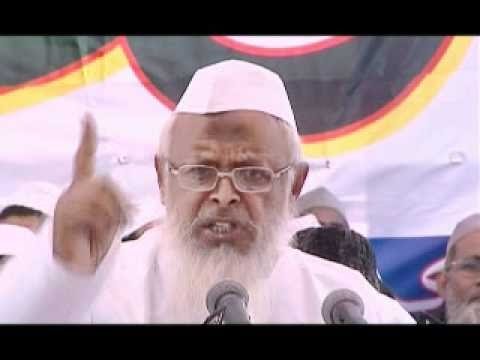New Delhi, Sep 10: Recent revelations have brought to light troubling discrepancies in the detention of 28 Muslims from Barpeta district, Assam. These individuals were sent to detention camps following inconsistencies in the spelling of their names across various documents. Many of them have Indian citizenship through their family members.
According to an investigation by the Barpeta district unit of Jamiat Ulama-i-Hind (Arshad Madani), several detained individuals missed their Foreigners Tribunals hearings due to a lack of awareness or other issues. Some did not receive any notices and were arrested by border police based solely on notifications issued to them.
Jamiat Ulama-i-Hind (JUH) President Maulana Syed Arshad Madani has announced plans to challenge the Foreigners Tribunal’s decisions in the Guwahati High Court. Among those detained are 13 women and 15 men.
Mufti Rasheedul Islam Mazahari, President of JUH Barpeta District, reported that his team met with the detainees’ family members, who presented proof of citizenship. Documentation was provided by the families of Kitab Ali, Ibrahim, Sirajul Haq, Shah Ali, Ainul Mandal, and Zaif Ali.
Family members of Sirajul Haq claimed that he had all necessary documents proving his citizenship but was not issued a notice. Instead, a border police officer allegedly summoned him to the station and arrested him the following day. Other individuals received foreigner notices prior to their arrests, while some could not attend their tribunal hearings due to personal issues or errors in name spelling.
In a previous legal battle, JUH successfully contested the dismissal of citizenship proofs for 25 lakh Muslims and 23 lakh Hindu women during the NRC process, averting a significant humanitarian crisis.
JUH has pledged to continue advocating for justice. The organization argues that 12 of the 28 Muslims were declared foreigners ex-parte, without a fair chance to defend themselves. These individuals did not receive any notice from the Foreign Tribunal. The remaining 16 detainees, many of whom are illiterate and impoverished, lacked awareness of legal procedures.
Reports indicate that the detainees were initially summoned to local police stations, then taken to the SP office before being sent to detention camps. They received foreigner notices from the Assam police’s border branch before their cases were formally reviewed by the Foreigners Tribunal.
The All Assam Minorities Students’ Union (AAMSU) contends that these individuals should not be labeled as foreigners while other family members retain Indian citizenship. According to JUH, these Muslims were declared foreigners in 1998, along with many individuals from various faiths.
On July 24, 2024, a circular from the Assam government’s Home and Political Department instructed border police and district officials not to forward cases of individuals from Hindu, Sikh, Buddhist, Parsi, Jain, and Christian communities who entered India before December 31, 2014, to the Foreigners Tribunals. The circular stated that these communities are eligible for Indian citizenship under the Citizenship (Amendment) Act, 2019, and directed these individuals to apply for citizenship via the Indian Citizenship Online portal. The police were also instructed to maintain a separate register for these cases.
Maulana Arshad Madani criticized this approach as discriminatory and a reflection of a dual standard of law. He condemned the practice of stripping citizenship from these 28 Muslims and sending them to detention camps without a fair legal process. Madani attributed these practices to the current BJP administration in Assam and questioned the fairness of declaring some family members as foreigners while others are recognized as Indian citizens.




